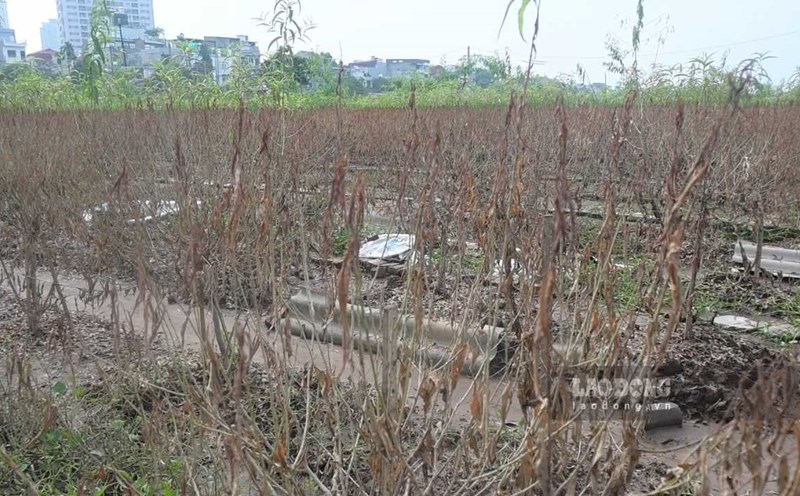After nearly 40 years of renovation, how do you evaluate the change in the position of the private economy in the Vietnamese economy?
- The past nearly 40 years have been a fundamental change in both the economic position, legal status and political prestige of the private economic sector (PDI). Regarding economic position, from an economic component that contributes almost insignificantly or even is not included in the gross domestic product (GDP), the State Audit affirms its position when there is a large workforce of 940,000 enterprises and 5 million business households, contributing more than 50% of GDP, 30% of the budget and 82% of jobs, contributing to hunger eradication, poverty reduction, brand development, and effective penetration into the world market.
Regarding legal status, the IPA is recognized in the constitution and legal regulations, gradually ensuring true equality with other economic sectors in access to resources, development opportunities and legal obligations.
In terms of political prestige, the KTTN contributes significantly to consolidating and ensuring the stability of the country's political system, promoting the operation of a socialist-oriented market economy in Vietnam. Many Party resolutions have been issued on gradually developing the ICP carefully and continuously, such as Regulation No. 15/QD-TW allowing Party members to become ICPs in 2006, Resolution 10-NQ/TW on developing ICPs to become an important driving force for the socialist-oriented market economy in 2017 and Resolution 68 on developing ICPs - the most important economic component in the Vietnamese economy in 2025.
Thus, every 10 years, there is an important policy to promote the development of the ICP and this policy of rapid, strong and solid development is almost unstoppable.
In your opinion, what is the significance of Resolution 68 in affirming the role of the State Audit?
- This is a Resolution that creates a significant turning point in the development of the ICP, opening a new period of brilliant ICP development. With this Resolution, resources capable of creating greater value for more equal access such as land, capital, orders, expanded development opportunities and development potential are exploited more smoothly by the State budget.
Accordingly, there is a possibility of a breakthrough in development based on the combination of innovation within the infrastructure components such as converting business households to enterprises, focusing on innovation, promoting private investment with state incentive measures on taxes, land, procedures and business autonomy from specific development policies at the local level after the merger. The ITS will be developed almost to the maximum from the central to local levels, urban to rural areas and expanded to a global scale.
Resolution 68 can be likened to "unblocking" so that the ICP can truly "explode and rebound" unprecedented in both scale and speed. The proportion of ICP can reach 80% of GDP by 2030 while other components are only 20% and there is a transition from other components to ICP.

In addition to the achievements, you see the biggest limitations and difficulties that the ITS is facing and what are the next solutions?
- The biggest limitation is still the solid assurance of truly equal treatment between economic sectors. In addition, there are no effective tools and measures for converting 5 million business households to enterprises. The scale of private enterprises is still small, medium and micro. The ability to link and cooperate to create a large economic force is still limited, including connecting with multinational corporations. Innovation investment is still modest and has not participated in high-value stages in the global value chain. New, highly effective business models have not been widely applied, especially e-commerce models. The process of digital transformation and green transformation, implementing greenhouse gas inventories, and reducing net emissions by 0 by 2050 is still slow. Business culture in the direction of highly respecting business ethics standards, protecting national customs and sustainable development standards has not been built professionally and effectively.
The solutions that need to be applied are the need for fair, satisfactory treatment, and real equality between economic sectors on the principle of ensuring transparency, publicity, eliminating informal costs, increasing friendliness and supporting the development of the business environment.
The institution of infrastructure development needs to be improved more synchronously and drastically. attach importance to synchronous market development and not limiting the participation of corporate bonds in all areas of the law that are not prohibited.
Respectfully reorganize the internal IT sector by converting business households to enterprises, converting ineffective state-owned enterprises and even cooperatives to the private sector to increase the potential of IT.
Respect the comprehensive tools and measures for developing a diverse culture of information technology in terms of qualifications, scope and organization forms, encourage the development of a variety of modern, civilized and smart new business models in the culture of information technology such as online network model, specialized business groups, innovation and creativity ecosystem, online private network chain, circular economy, sharing economy...
Regarding the vision for the next 10-20 years, how do you expect the KTTN to contribute to the country's development goals?
- That is the time when Vietnam becomes an industrialized country with high income. The ITS will contribute about 80-85% of GDP, create about 90-95% of jobs in the economy and contribute about 70-80% to the budget. Vietnam will have about 2.5-3 million private enterprises operating in all areas of the economy and at least 20 KTTN corporations on the list of 500 largest corporations in the world. Many high-tech, core technology, and spearhead technology will be owned by Vietnamese private enterprises and dozens of Vietnamese billionaires will appear on the list of 500 richest billionaires in the world.
Those figures will be both expected and evidence of objective assessment and confidently affirm the great impact of the comprehensive development policy of Vietnam's internal affairs and business in the era of rising up from 2025 to move towards a rich, strong, democratic, fair, civilized and prosperous Vietnam.
Sincerely thank you!











